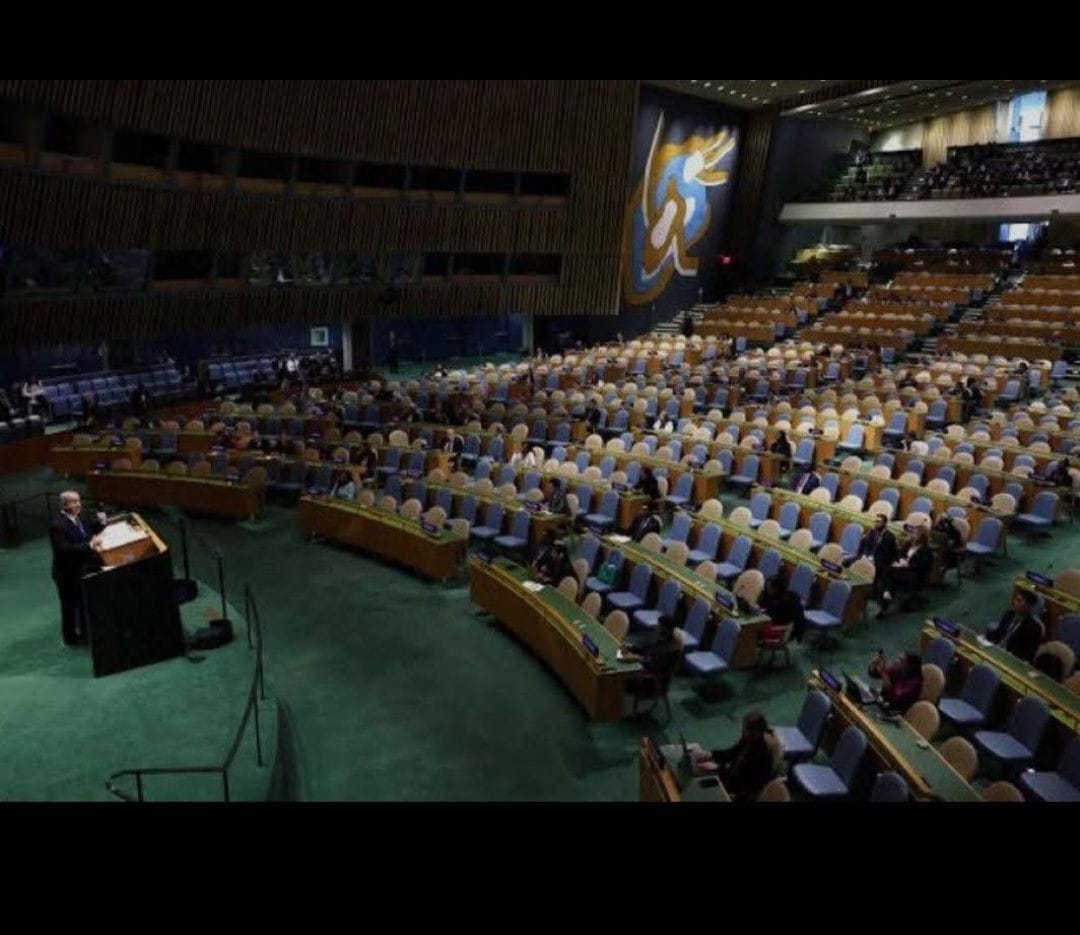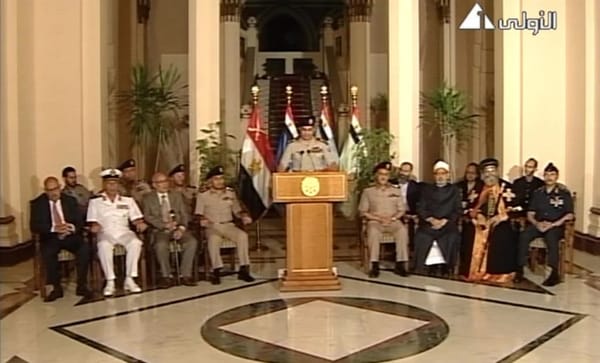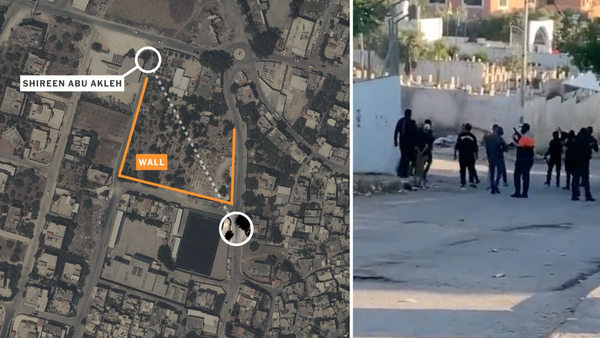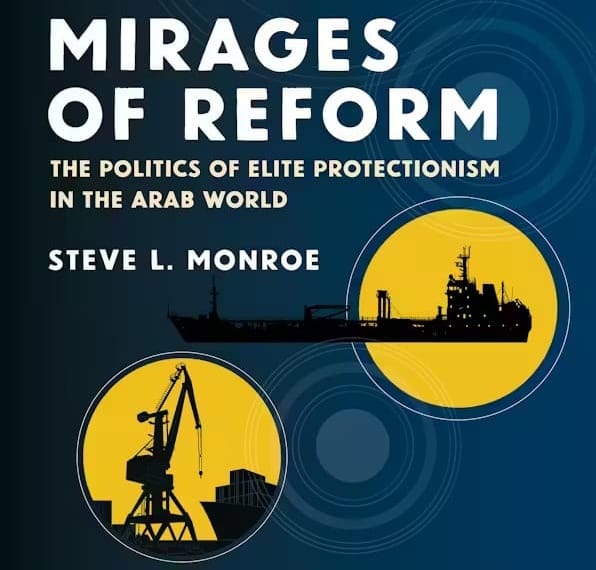Israel's costs are mounting. What that means is less clear.

Plus another roundup from the MENA academy!
For most of the first two years of Israel's devastating war on Gaza it avoided paying serious costs despite the mounting expert consensus that its campaign involved at the least major war crimes and potentially amounted to genocide. The historic rulings at the International Court of Justice and indictments of top Israeli officials by the International Criminal Court certainly made their mark, but the United States (meaning Biden, not just Trump) helped to blunt the force of those rulings and ensure Israeli impunity by blocking any action in the Security Council and launching a ferocious counterattack on those core institutions of international law. The US ensured a constant resupply of Israel's military arsenal, and embraced its military moves against Hezbollah and Iran (and, if not thrilled about them, stood back as Israel bombed the Hamas office in Qatar and aggressively destabilized transitional Syria. And both Biden and Trump, of course, cracked down hard on any domestic criticism of Israel's war. All of that has enabled and encouraged ever more reckless Israeli behavior across the region and in Gaza.
But now, with Netanyahu back in DC to talk about Trump's latest hallucinogenic Gaza "peace plan" (Tony Blair as consul? Really?), there's a strong feeling in the air that the vibes have shifted. Actual diplomatic and political costs for Israel are beginning to mount as frustration grows with Israel's relentless infliction of mass death and displacement in Gaza and overt lack of interest in either diplomatic solutions or any kind of post-war Gaza that involves Palestinians actually living there. The most dramatic change was last week's recognition of the State of Palestine by Great Britain, France, Canada and Portugal — a move which is not unproblematic for a wide range of reasons, as I wrote last week, but which Israel and the US strongly opposed. The dramatic walkout by diplomats from Netanyahu's speech at the United Nations General Assembly (pictured above) highlighted Israel's increasing global isolation. It is remarkable that Netanyahu felt the need to choose a flight path to the US that largely avoided European air space. The Saudi strategic agreement with Pakistan may not really offer a nuclear umbrella, yet, but it's remarkable how directly it was presented as a response to the shocking Israeli bombing of neighboring Qatar. And it is intriguing that Trump felt the need to publicly assure assembled Arab leaders that the US would not allow Israeli annexation of the West Bank – a pledge which may soon be tested by Israel, since few really expect him to be willing or able to follow through.
US public opinion is moving too. A new Quinnipiac poll found a 22 point drop from late 2023 when asking whether supporting Israel was in the US national interest, with only 47% still saying yes (only 21% have a favorable opinion of Netanyahu himself). That's consistent with many other surveys conducted in recent months. The demographics of those surveys, as well as a great deal of anecdotal evidence and a lot of reporting, shows that the shift is especially dramatic – and likely permanent – among youth. Maybe none of this matters, maybe it's all transient noise which will pass with the headlines, maybe pro-Israel elites and institutions can continue to repress and resist any pressure to change course. But it really doesn't feel like it anymore – it feels like the generational change in views of Israel that many people have been projecting since the ground invasion of Gaza began is now beginning to fully materialize and consolidate. Nobody knows precisely how that will manifest, of course – not in the global realm or in US politics – but the change is increasingly undeniable.
I don't expect Trump to actually put real pressure on Israel right now but who knows - we now live in a personalistic, corrupt and lawless regime in which this president (and only this one) is utterly unconstrained by law, norms, precedent, Congress, public opinion, morality, ethics, or for that matter reality – and where an easily insulted president's personal relationships with foreign leaders seem to matter more than anything else. It's difficult to imagine Trump using this freedom to do anything good, anywhere, but it's also hard to justify any assumptions that any policy is truly locked into place.. even on Israel. The latest leaks and reporting on the peace plan aren't especially hopeful, and there's nothing at all in the current cabinet or leadership to suggest that anything positive is on the way. But I think things are more fluid than they appear.
And now, this week's MENA Academy roundup
Our feature article of the week is Lisel Hintz and Jonas Draege, "Film-Making the Nation Great Again: Audio-visualizing History in the Authoritarian Toolkit." This is an incredibly original and fascinating article which uses a huge original dataset of pro-regime YouTube videos to unpack the legitimation strategies of Turkey's ever more autocratic regime. This is really innovative and interesting stuff – with all kinds of implications for how we should study other regimes like, say, Trump's. Hintz has been doing extraordinary work on Turkish popular culture and politics for a long time now, and this piece should get a lot of attention.
We also spotlight new research in top disciplinary journals by Mehmet Yahfuz on Turkish public opinion after the 2016 coup attempt, a spectacular piece by Fanar Haddad on 'competitive impunity' in Iraq, a fascinating exploration of the ethical and practical issues surrounding field research with salafi communitys by Theo Blanc, and Louise Alexandre-Berg on the unintended political impact of US Security Force Assistance in Iraq.
Lisel Hintz and Jonas Draege, "Film-Making the Nation Great Again: Audio-visualizing History in the Authoritarian Toolkit," Perspectives on Politics (September 2025). ABSTRACT: How can populist authoritarian incumbents justify remaining in power when the golden age they promised remains unrealized? We argue that audiovisual products such as videos are particularly suited to enlivening the histories that so many populists evoke in seeking to legitimize their rule. Political science’s traditional focus on speech-based legitimation, however, leaves audiovisual tools largely overlooked. The few studies that do engage these tools test for audience effects, but the content itself and the political strategies behind its curation and dissemination remain undertheorized. By adding an audiovisual lens to studies of authoritarian legitimation, we identify a regime durability strategy we term selective revivification. We specify the cognitive and affective characteristics of videos that quickly communicate information-dense, emotionally evocative messages, arguing that they engagingly distill specific historical elements to portray incumbent rule as not just legitimate but also necessary. In advancing our argument, we construct an original dataset of all existing narration-based YouTube videos shared by six regime institutions in Turkey from the establishment of YouTube in 2005 to 2022 (n = 134). We use quantitative analysis to identify when video usage emerges as a strategy, as well as patterns of dissemination and content elements. We then use intertextual analysis to extract common historical themes and production techniques. The audiovisual tools we specify and the selective revivification strategy they enable fill gaps in studies of authoritarian legitimation while adding to political scientists’ toolkits for wider inquiry.
Mehmet Yahfuz, "Crises and Ideological Change in Authoritarian Regimes: Evidence From the July 2016 Coup Attempt in Turkey," Comparative Political Studies (September 2025). ABSTRACT: In this study, I investigate how crises affect the ideological claims of authoritarian regimes. While existing studies emphasize the significance of ideological legitimation claims for the consolidation of authoritarian regimes, they do not examine whether the intensity and usage of these claims change after a crisis. I address this gap by utilizing the competitive authoritarian regime of Turkey before and after the July 2016 coup attempt. I use a novel dataset of President Erdoğan’s speeches and combine various text-as-data tools, including word embeddings, dictionary-based measures, and topic modeling, with an interrupted time series analysis. The results suggest that the coup attempt led to a short-term increase in the intensity of ideological claims and a long-lasting increase in the ideological framing of regime outsiders in Erdoğan’s speeches. These results demonstrate that crises transform the ideological claims of authoritarian regimes by reshaping how and to what extent such claims are used.
Fanar Haddad, "Competitive Impunity: The Contestation of Symbolism in Baghdadi Public Space," Middle East Critique (September 2025). ABSTRACT: This article uses urban semiotics as a lens to analyze elite power relations in Iraqi politics, as well as the role and limits of impunity therein. The article focuses on the contestation of symbolism in Baghdadi public space between different political and security actors with a special focus on the symbolism of the Popular Mobilization Units (the Hashd al-Sha’bi) and the Sadrists. Understanding the informal rules and mechanisms that govern how elite actors utilize public space reveals much about how power relations are negotiated, upheld, and contested. It also sheds light on the countervailing pressures and considerations that constrain the impunity that elite actors enjoy.
Theo Blanc, "Interviewing Salafis in Tunisia: Ethical and Methodological Challenges of Fieldwork with Oppositional Communities," Journal of Contemporary Ethnography (September 2025). ABSTRACT: This article critically reflects on the methodological and ethical challenges of my fieldwork involving interviews with Salafi fundamentalists in Tunisia (2017–2022). I focus on three key challenges often under-discussed in the study of Salafism: recruiting interviewees, building rapport, and balancing transparency and positionality with access. I revisit the critical role played by intermediaries and re-evaluate the costs and benefits of an outsider positionality in establishing rapport with suspicious communities, arguing that it may facilitate access if used strategically. I then argue that effective fieldwork often requires withholding the entire truth or playing with the emphasis—as opposed to lying—based on a distinction between the researcher’s role and identity. Finally, I challenge the notion of interviewing as strictly unilateral and extractive and discuss the strategic motives and tools that interviewees have to turn interviews to their advantage, including reverse questioning. My conclusions extend to all research on hard-to-reach populations.
Louise Alexandre-Berg, "US Security Force Assistance and Civil-Military Relations," Security Studies (September 2025). ABSTRACT: The United States has sought to influence defense oversight institutions through security force assistance (SFA) hoping to enhance military effectiveness and prevent human rights abuse. When does SFA contribute to institutional change? I posit that opportunities for influence depend on fragmentation within the recipient country’s governing coalition. Ruling elites often politicize defense institutions through informal networks and practices to maintain power and prevent coups. Elites with a cohesive party network tend to benefit from these practices and oppose institutional change. In contrast, where the ruling coalition is fragmented among multiple factions and networks, politicized defense institutions are less reliable and the risk of defections is higher, leading to openings for institutional change and greater donor influence. A quantitative analysis of US SFA and a case study of Iraq from 2005 to 2015 suggest that elite fragmentation increases the likelihood that SFA contributes to institutional change by creating openings for influence. The study points to the need for further research on how internal politics affect the potential for influence through SFA.
The costs of hosting this blog on Ghost are a lot higher than Substack, but it's worth it to not have to hang out with Nazis. Please consider becoming a paying member of the MENA Academy if you can to help offset the costs - I depend on core supporters to keep this going!



